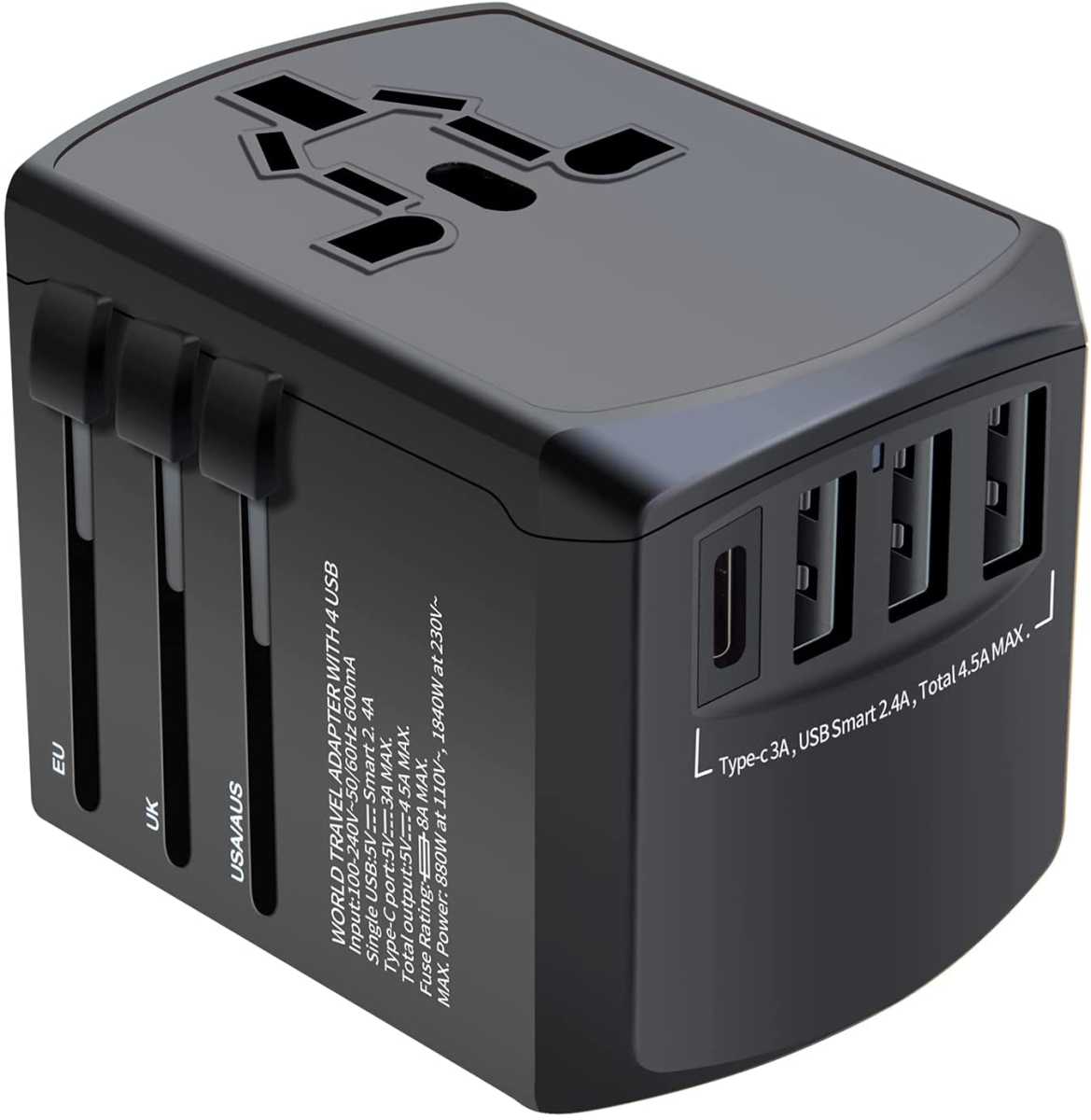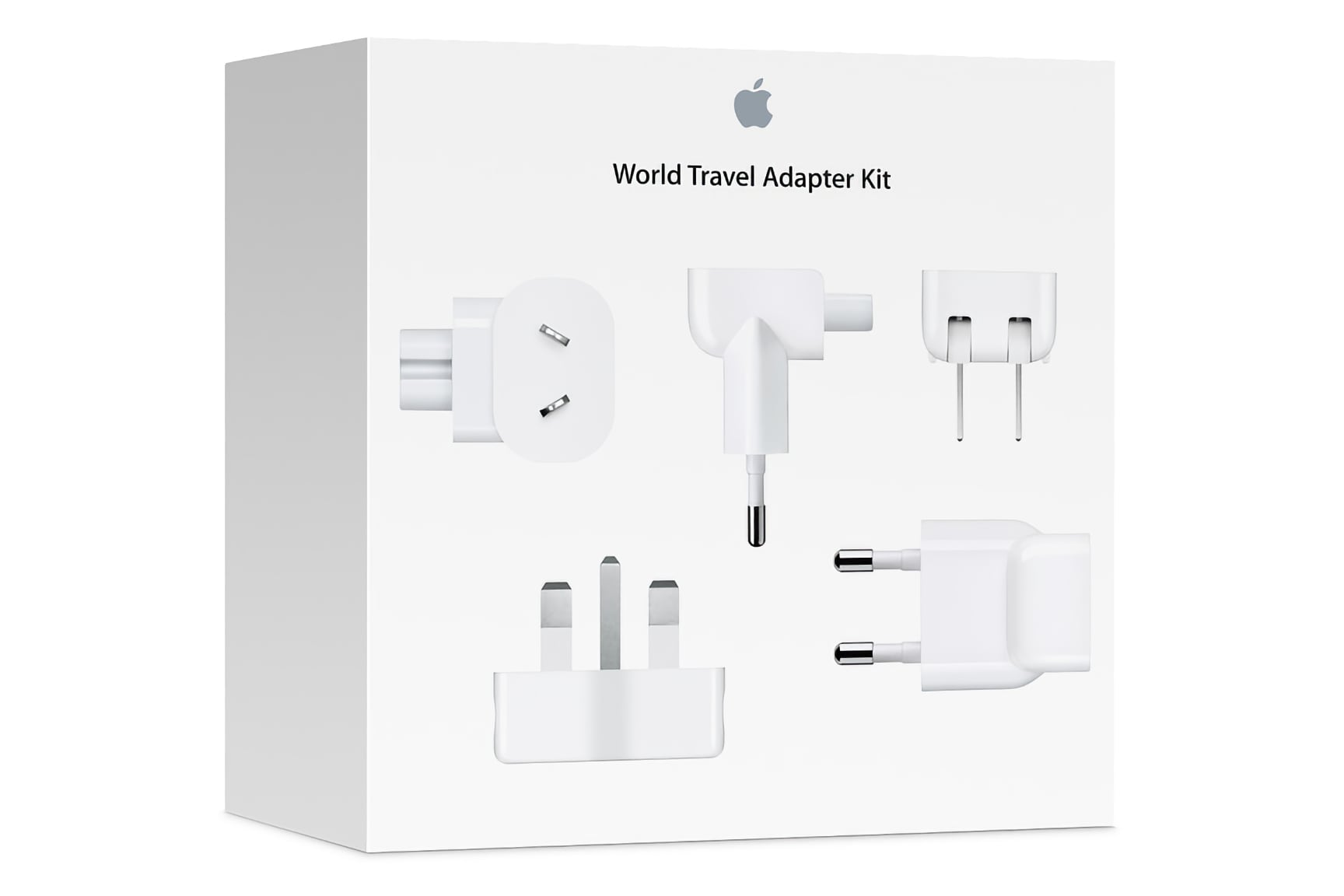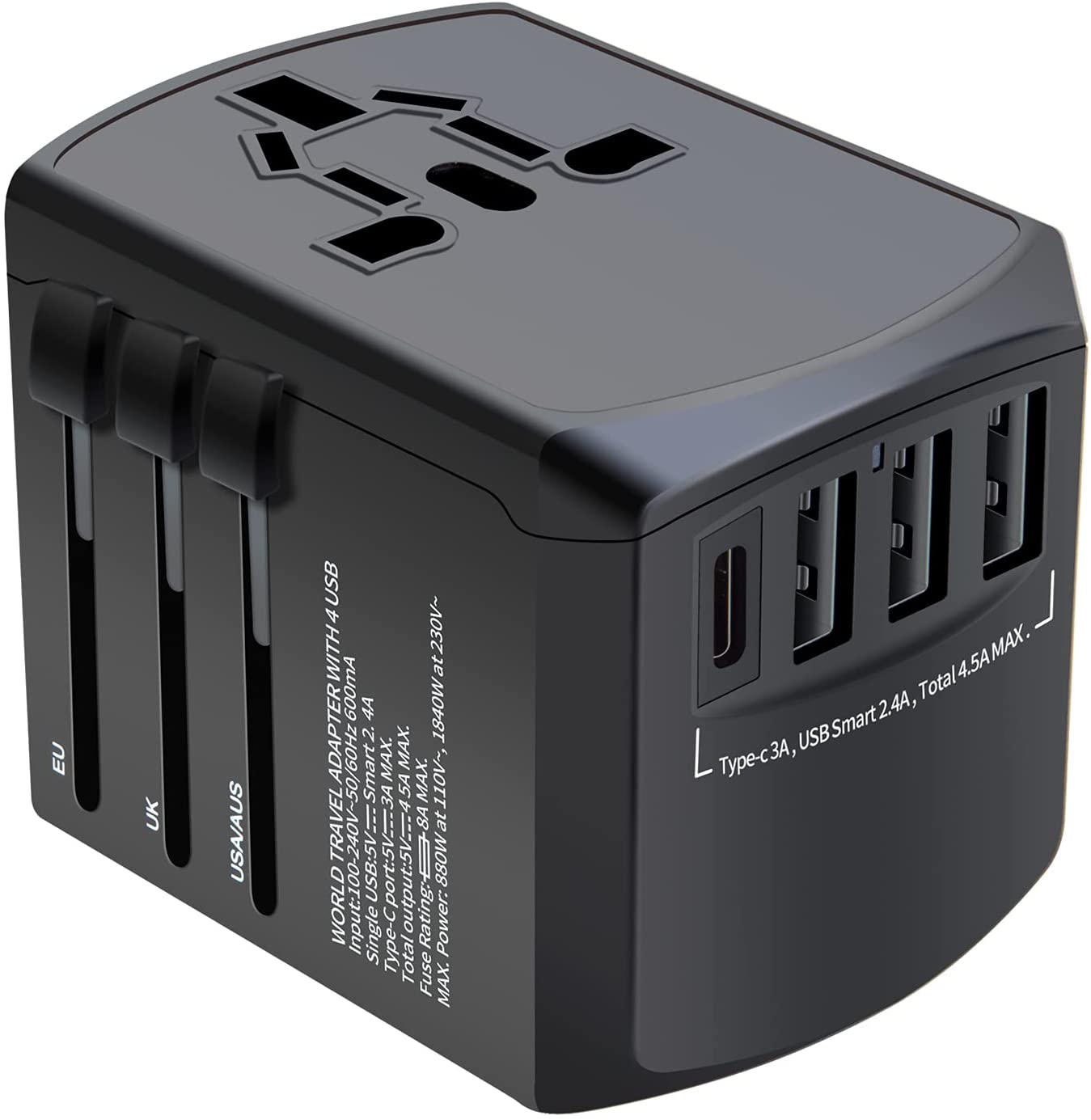With the notion of travel once again seeming feasible to many people, you might find yourself in a country or region that uses a different power outlet style than the one in which your Apple gear typically operates. Fortunately, Apple makes it easy.
Apple and much of the computer, electronics, and personal hygiene appliance worlds began building power supplies into their devices starting decades ago that could handle outlet styles used globally. There are fifteen—yes, fifteen!—different plug/outlet styles around the world. (You can use this map and detailed list to plan which outlets you need to be ready for.)
All Apple equipment sold for the last 20 years requires just a different plug on the end: there’s no switch to flip or other requirements. (It’s been the case for so long, I can’t find when Apple upgraded to automatic voltage switching.) This is also true for most other electronics going back nearly as long. Even my razor has automatic switching, though my spouse’s relatively old-model hairdryer requires flipping a switch from 110 to 220.

Now you just need an adapter. For Apple gear, you have several choices:
- Apple World Travel Adapter Kit: This $29 (U.S.) kit comes with seven different AC prong-attachments designed to swap out with its standard power adapters for Macs, iPhones, iPads, and iPods. The list of support lengthy: “It is compatible with Apple USB-C Power Adapters, MagSafe and MagSafe 2 Power Adapters, 10W and 12W USB Power Adapters, and Portable Power Adapters.” However, this kit has only one outlet adapter for each type.
- USB Type-A or Type-C power adapters: With the profusion of charging over USB-C and remaining devices relying on a USB Type-A connector, you might look for a multi-charger designed for the outlet standard of where you’re traveling or that comes with multiple interchangeable plugs. That could include something as wild as this Worldwide Travel Adapter with slide-out AC plugs corresponding to the country, and including one USB-C and three USB Type-A ports for $17.95.
- Plug adapters: You can go the low-tech and cheap route, and just buy a simple plug-to-plug adapter. These often low-profile adapter let you plug in your native power adapter or cord and then plug that right into the wall. These are often sold in packs of two or three for just a few dollars each.
This Mac 911 article is in response to a question submitted by Macworld reader Sandra.
Ask Mac 911
We’ve compiled a list of the questions we get asked most frequently, along with answers and links to columns: read our super FAQ to see if your question is covered. If not, we’re always looking for new problems to solve! Email yours to mac911@macworld.com, including screen captures as appropriate and whether you want your full name used. Not every question will be answered, we don’t reply to email, and we cannot provide direct troubleshooting advice.
from Macworld.com https://ift.tt/32HHI0C
via IFTTT

